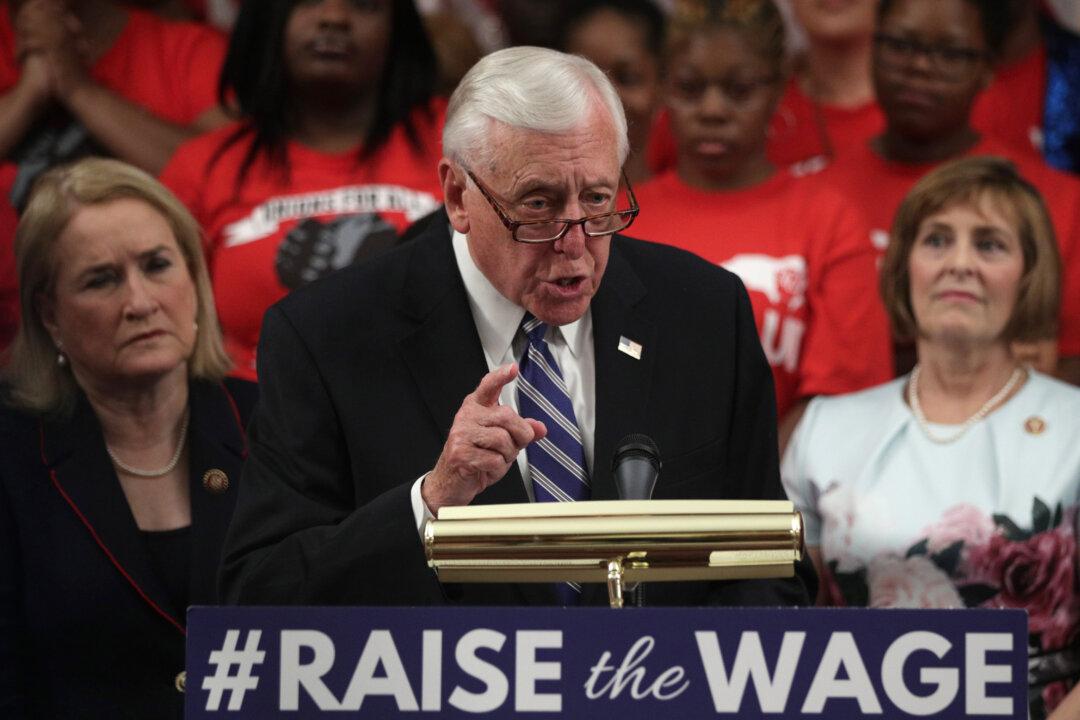WASHINGTON—Rep. Steny Hoyer (D-Md.) was House Majority Leader in 2009 when the federal minimum wage was increased to its present level of $7.25, and he was happy to be in the same job on July 18 as the lower chamber of Congress voted to more than double it.
“I was House Majority Leader the last time we raised the minimum wage, and I’m proud to bring this legislation to the floor now,” Hoyer told colleagues before the vote.





